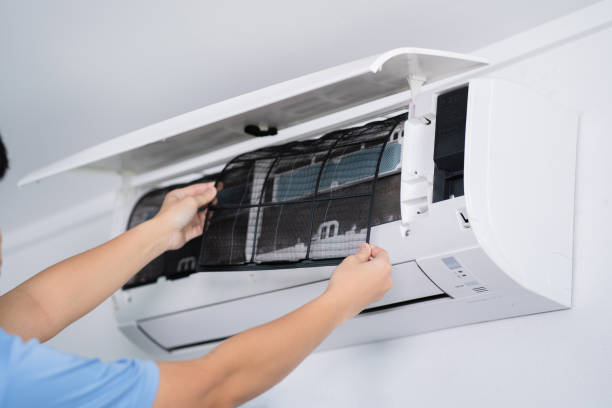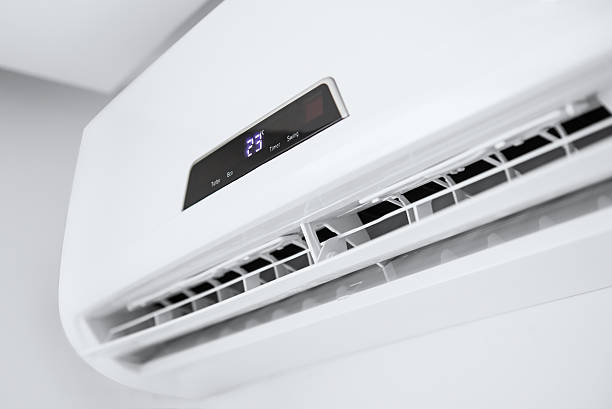
Selecting the right HVAC contractor is crucial to ensure your heating and cooling systems are repaired efficiently and effectively. With countless options available, it’s essential to approach the decision-making process with careful research and consideration. Below are some key factors to evaluate when choosing an HVAC contractor for your repair needs.
Licensing and Certification
One of the first things to verify is whether the contractor holds the appropriate licenses and certifications required by your state or region. Licensed professionals are more likely to deliver reliable services as they adhere to local codes and regulations. Certifications from organizations like North American Technician Excellence (NATE) indicate advanced knowledge and expertise in HVAC systems.
Experience Matters
An experienced contractor will have a deeper understanding of various HVAC brands, models, and complex repair challenges. Look for companies that have been in business for several years or inquire about their technicians’ individual experience levels.
Insurance Coverage
Always choose a contractor who carries both liability insurance and workers’ compensation coverage. Liability insurance protects you from financial losses caused by accidental property damage, while workers’ compensation ensures you’re not held responsible for injuries sustained by workers on your property.
Services Offered
Not all contractors provide comprehensive HVAC repair services. Confirm that the company specializes in repairs for both heating (furnaces, heat pumps) and cooling (air conditioners) systems. This ensures they can handle your specific needs without outsourcing parts of the job, which could lead to delays or inconsistent quality.
References and Reviews
Online reviews can help you gauge customer satisfaction with a particular contractor’s services. Additionally, ask the contractor for references so you can speak directly with past clients about their experiences.
– Was the work completed on time?
– Did they stick to the budget provided?
– Were there any issues after repairs were made?
Clear Estimates
Request detailed written estimates before committing to a contractor’s services.
– Cost of labor
– Price of replacement parts or materials needed
– Expected timelines for repair
Avoid contractors who give vague estimates or refuse to provide documentation upfront.
| Factor | Why It Matters | What To Look For |
| Licensing | Ensures adherence to local codes | State-required licensure |
| Certifications | Indicates technical expertise | NATE certification |
| Insurance | Protects against liability risks | Liability & workers’ compensation coverage |
| References/Reviews | Offers insight into reputation | Positive feedback from prior clients |
| Written Estimates | Ensures transparency & no hidden costs | Detailed breakdown of costs |
Red Flags To Watch For
- High-pressure sales tactics pushing unnecessary upgrades or replacements.
- Unwillingness to provide references or proof of insurance/licensing.
- Extremely low bids compared to competitors (this could be indicative of subpar service).
- Poor communication throughout initial consultations.
Taking these precautions will help ensure you hire a reputable HVAC professional capable of delivering high-quality repairs tailored to your home’s heating and cooling needs.
Hiring the right HVAC repair contractor is vital to ensuring your heating and cooling systems are repaired efficiently and reliably. Below are some key questions you should ask to evaluate a potential contractor.
Licensing ensures they meet professional standards and regulations.
2. How Much Experience Do You Have?
Experience matters when hiring for HVAC repairs. Ask how long they’ve been in business and whether they have worked on systems similar to yours.
Request references from previous clients or check online reviews on platforms like Google, Yelp, or Better Business Bureau (BBB). Positive feedback from past customers can help validate the quality of their work and customer service.
4. What Types of HVAC Systems Do You Specialize In?
Not all contractors are familiar with every type of heating or cooling system. Confirm whether the contractor has expertise in repairing your specific type or brand of system, such as central air conditioners, heat pumps, furnaces, or ductless mini-split units.
This document should outline labor costs, parts, warranties, and any potential additional fees so you can avoid hidden costs later.
Sample Table: What to Look for in Written Estimates
| Item | What It Should Include |
| Labor Costs | Hourly rates or flat fees for service |
| Parts Pricing | List of components required for repair |
| Warranty Terms | Coverage period and what is included (labor/parts) |
| Additional Fees | Possible charges for emergency service or after-hours repairs |
6. What Warranties Do You Offer?
Reputable contractors often back up their services with warranties on both parts and labor.
7. How Long Will the Repairs Take?
Timeframes can vary based on the complexity of repairs needed. Asking about estimated completion times helps you plan accordingly while ensuring expectations are clear upfront.
8. Are There Financing Options Available?
Some major HVAC repairs can be expensive upfront costs. If needed, inquire whether financing plans are available so you can budget effectively without compromising quality service.
Key Takeaways for Furnace Repair Woodbridge VA
- Verify licensing/insurance details.
- Check experience levels.
- Request references/reviews.
- Understand cost breakdowns through written estimates.
- Confirm expertise with your specific HVAC system type.
- Review warranties offered for parts/labor.
- Clarify timelines and financing options where applicable.
This thorough vetting process not only minimizes risks but also increases your chances of finding a reliable contractor who meets your needs effectively.
How to Choose the Right Contractor for HVAC Installation Woodbridge VA
When faced with a broken HVAC system, it’s natural to want repairs completed quickly and at a low cost. However, opting for the lowest bidder on your HVAC repair project can lead to long-term issues that far outweigh any immediate cost savings. Below, we’ll explore why choosing the cheapest option is often a risky decision and provide insights into what you should prioritize instead.
Hidden Costs of Low Bids
- Inferior Quality Materials:
The lowest bid often reflects the use of cheaper, lower-quality components that may not last as long or function as efficiently. Over time, this can lead to frequent breakdowns and increased repair costs. - Lack of Expertise:
Contractors offering significantly lower bids may lack the necessary certifications, training, or experience required for quality repairs. This could result in improper installations or subpar fixes. - Incomplete Repairs:
In some cases, contractors proposing low bids might cut corners by addressing only surface-level issues rather than identifying and resolving root causes. - Warranty Limitations:
Many low-cost contractors don’t offer robust warranties on their work or materials — leaving you responsible for future problems that might arise.
What Does a Low Bid Typically Indicate?
| Indicator | Possible Risks | Long-Term Impact |
| Unrealistically Low Prices | Use of unlicensed workers | Substandard workmanship |
| Shorter Timeframes | Rushed jobs with oversight errors | Reduced efficiency of your system |
| Minimal Warranty Coverage | Limited accountability if issues arise | Increased expenses for rework |
While it might be tempting to save money upfront with a low bid, these risks often result in higher costs down the line due to repeated repairs or complete system replacements sooner than expected.
Qualities That Matter More Than Cost
- Experience:Look for contractors with proven expertise in diagnosing and repairing HVAC systems similar to yours.
- Certifications & Licensing:Verify that your chosen professional holds necessary certifications such as NATE (North American Technician Excellence) or state-specific licenses.
- Reputation & Reviews:Research customer reviews online to evaluate the contractor’s reliability and quality of work.
- Warranty Offerings:A solid warranty shows confidence in their workmanship and provides peace of mind.
- Detailed Estimates:Ensure you receive an itemized estimate outlining labor costs, materials used, and project scope — this transparency helps avoid unexpected fees later on.
Benefits of Avoiding Low Bids
- Improved energy efficiency due to proper system calibration and installation techniques.
- Fewer breakdowns requiring emergency service calls.
- Greater overall satisfaction with consistent indoor comfort levels.
While it’s important to stay within budget, selecting an experienced contractor who offers fair pricing based on value ensures your heating and cooling system performs optimally in the long run.
How to Choose the Best Emergency HVAC Service Woodbridge VA by Checking Online Reviews
When choosing an HVAC repair service, online reviews can provide critical insights into the quality of work, customer service, and overall reliability of a contractor. Reviews from past customers act as a virtual word-of-mouth and can help you make an informed decision. Here’s why checking online reviews is essential and how to use them effectively.
Benefits of Checking Online Reviews
- Authenticity: They provide firsthand accounts of customer experiences, helping you get a realistic understanding of what to expect.
- Transparency: Reviews can shed light on how contractors handle both routine maintenance and unexpected issues.
- Red Flags: Negative feedback can alert you to recurring problems or poor practices, such as missed appointments or incomplete repairs.
- Comparative Information: By reading multiple reviews across different contractors, you can identify trends in service quality and professionalism.
What to Look for in HVAC Contractor Reviews
Not all reviews are equally helpful.
- Look at the contractor’s average rating across platforms such as Google, Yelp, or Better Business Bureau (BBB). A high cumulative score is often a good indicator of overall satisfaction.
- Pay attention to patterns in the comments rather than focusing solely on individual experiences. If multiple customers praise prompt service or criticize communication issues, these trends are likely accurate reflections of the contractor’s practices.
- Prioritize reviews that describe specific issues or projects instead of vague statements like “Great service. ” Detailed feedback offers actionable insights into what went well—or poorly—during past jobs.
- HVAC technology evolves over time, so focus on recent feedback to ensure that it reflects the contractor’s current expertise and approach.
Red Flags in HVAC Service Reviews
- Complaints about hidden fees or surprise charges after work is complete.
- Multiple mentions of missed deadlines or tardiness.
- Poor communication during scheduling or project updates.
- Reports of unprofessional behavior by technicians.
| Criteria | Positive Traits | Red Flags |
| Customer Service | Polite staff; responsive team | Rude interactions; lack of updates |
| Quality of Work | Thorough diagnosis; lasting fixes | Frequent callbacks for repairs |
| Timeliness | On-time arrival; quick resolution | Missed appointments; delays |
| Transparency | Clear pricing; honest estimates | Hidden costs; vague explanation |
Best Practices for Using Online Reviews Effectively
- Check multiple platforms like Google My Business, Angi (formerly Angie’s List), Yelp, and BBB.
- Avoid relying solely on star ratings—read through individual comments for context.
- Combine review research with other vetting tools such as referrals from friends or family members.
- Be wary if most positive reviews appear overly generic—it could indicate fake testimonials.
By leveraging reliable online reviews alongside other research methods, you increase your chances of hiring an HVAC contractor who delivers quality results while meeting your unique needs efficiently and professionally.
How a Professional Home Inspection Can Identify Critical HVAC Repair Needs
When it comes to maintaining your HVAC system, professional home inspections play a crucial role in identifying potential issues before they turn into costly repair projects. A comprehensive inspection not only ensures the functionality of your heating and cooling systems but also helps improve energy efficiency, comfort, and safety in your home. In this article, we’ll delve into how a professional inspection can uncover key HVAC repair needs.
What Does an HVAC Inspection Include?
An HVAC inspection involves a thorough evaluation of your heating, ventilation, and air conditioning systems. Professional inspectors assess all components for wear and tear, damage, or inefficiencies.
- Thermostat Calibration:Verifying that the thermostat is functioning correctly and accurately maintaining desired temperatures.
- Air Filter Check:Inspecting air filters for blockages or dirt buildup that can reduce airflow and put strain on the system.
- Ductwork Inspection:Checking for leaks, blockages, or improper insulation in duct systems that may affect air distribution.
- Electrical Connections:Examining wiring and connections to ensure there are no safety hazards or faulty components.
- Heat Exchanger Condition:Inspecting the heat exchanger for cracks or corrosion that may lead to carbon monoxide leaks.
- Refrigerant Levels:Ensuring refrigerant levels are adequate to maintain proper cooling performance in your air conditioner.
Common Issues Identified During Inspections
- Dirty Coils– Reduced efficiency due to buildup on evaporator or condenser coils.
- Leaky Ducts– Air escaping through gaps or holes in ducts significantly impacts energy efficiency.
- Worn Belts– Loose or damaged belts in older systems may lead to mechanical failure.
- Clogged Condensate Drains– Blocked drains can cause water damage or mold growth.
- Aging Components– Parts nearing the end of their lifespan may require replacement to avoid system breakdowns.
By addressing these issues promptly, you can help extend the life of your HVAC system while minimizing unexpected repair costs.
Benefits of Regular Inspections
- Improved energy efficiency that lowers monthly utility bills.
- Enhanced indoor air quality by identifying issues like dirty filters or mold growth in ducts.
- Prolonged lifespan of HVAC components through preventive maintenance.
- Safer operation by avoiding risks like electrical malfunctions or carbon monoxide leaks.
Sample Checklist for an Effective Inspection
| Component | Issue Checked For | Action Required |
| Thermostat | Proper calibration | Adjust settings if needed |
| Filters | Dirt buildup | Clean/replace filters |
| Ductwork | Leaks/blockages | Seal leaks/reinsulate ducts |
| Electrical Components | Loose wires/corrosion | Secure/balance connections |
| Refrigerant Levels | Undercharging/overcharging | Refill/remove excess refrigerant |
This checklist ensures every critical component is evaluated systematically.
Final Thoughts
Investing in professional home inspections is one of the best ways to safeguard the performance and durability of your HVAC system. By catching repair needs early, you not only prevent costly emergencies but also create a healthier living environment for yourself and your family year-round.
Comparing Multiple Contractors to Find the Best Solution for Your HVAC Repair
When faced with HVAC repair needs, selecting the right contractor can make all the difference in ensuring high-quality service and long-term reliability. Comparing multiple contractors is a crucial step that helps you evaluate your options and choose the company best suited to meet your requirements. Below are key considerations and strategies to guide you in making an informed decision.
Benefits of Comparing Contractors
- Better Pricing: Gathering multiple quotes allows you to understand market rates and avoid overpaying.
- Service Quality: Evaluating contractors’ expertise ensures you get skilled professionals for the job.
- Tailored Solutions: Different contractors may offer varied approaches, allowing you to choose one aligned with your needs.
- Transparency: Interacting with several companies helps identify transparent and customer-focused services.
Steps to Compare HVAC Contractors
- Request Multiple EstimatesObtain written estimates from at least three contractors.
- A breakdown of labor costs
- Equipment or parts required
- Anticipated timeline for completion
Use this information not only to compare pricing but also to assess service details.
- Review Licenses and Certifications Verify that each contractor:
- Holds the necessary licenses specific to your state or locality
- Has certifications such as NATE (North American Technician Excellence) or EPA 608 Certification
- Check Online ReviewsCompare online reviews across platforms like Google, Yelp, and Better Business Bureau (BBB).
- Timeliness of service
- Professionalism of technicians
- Quality of repairs performed
- Evaluate Warranties OfferedCompare warranties provided by each contractor on both labor and replacement parts. A strong warranty reflects a company’s confidence in their work.
- Assess Communication Skills During initial consultations, consider how well each contractor communicates:
- Are they clear in explaining technical issues?
- Do they answer questions thoroughly without pressuring sales?
Key Metrics for Comparison
| Criteria | Contractor A | Contractor B | Contractor C |
| Price Estimate | $_____ | $_____ | $_____ |
| License Verified | Yes/No | Yes/No | Yes/No |
| Online Ratings | ★★★ / 5 | ★★★★ / 5 | ★★★★★ / 5 |
| Warranty Length | ______Years | ______Years | ______Years |
| Availability Timeline | ______Weeks | ______Weeks | ______Weeks |
Use this table as a template to organize information from each contractor so that you can easily compare them side-by-side.
Red Flags to Avoid
- Unusually low estimates compared to competitors (may indicate poor quality or hidden fees)
- Lack of proper credentials or certifications
- Vague answers when discussing warranties or repair methods
- Negative customer reviews mentioning unresolved issues
Final Thoughts on Making an Informed Choice
Choosing the best HVAC repair solution requires careful evaluation of all available options. By comparing estimates, credentials, reviews, warranties, and communication styles, you can identify a trustworthy contractor who delivers reliable results without compromising on quality or transparency.
- Understanding Furnace Types for Better AC Repair Woodbridge VA
- Identifying Air Conditioner Issues and How an HVAC Contractor Woodbridge VA Can Help
- Identifying Common Air Conditioning Issues with Your Trusted HVAC Contractor Woodbridge VA
- How to Choose the Best HVAC Contractor Woodbridge VA for Your Heating and Cooling Repair Needs
- Recognizing the Common Signs That Your Furnace Needs Immediate AC Repair Woodbridge VA
- Effective Solutions for AC Repair Woodbridge VA: Tackling Common Air Conditioner Problems
- How to Choose the Best Furnace Repair Woodbridge VA Contractor
- How to Choose the Right HVAC Contractor for AC Repair Woodbridge VA

